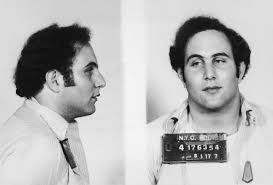Fantasies
Serial Killers and the Essential Role of Fantasy
Obsessive fantasies drive serial killers to murder repeatedly.
Posted October 13, 2014 Reviewed by Ekua Hagan

What drives serial killers to commit murder repeatedly? After many years of research, the Behavioral Science Unit of the FBI has concluded that serial killers program themselves in childhood to become murderers through a progressively intensifying loop of fantasy.
The definition of fantasy in this context is an elaborate mental thought with great preoccupation that is anchored in the daydreaming process.1
Fantasy can be experienced through mental images and/or feelings. Fantasy serves to relieve anxiety or fear and most people have them to one extent or another. Although some fantasy in childhood is normal, it can become a compulsive form of escapism in children who are abused, neglected, or otherwise traumatized.2
Many serial killers have confessed to both trauma and morbid preoccupation with fantasy during childhood. For example, Ed Kemper, the “Co-ed Killer,” who was severely abused as a child by his mother has said, “I knew long before I started killing that I was going to be killing; that it was going to end up like that. The fantasies were too strong. They were going on for too long and were too elaborate.”
When fantasies are combined with masturbation, a sexual component is added to the cognitive or mental process.3 In-depth interviews with incarcerated serial killers have revealed that the most common childhood traits among them, which extended into their adolescence and adulthood, are daydreaming and compulsive masturbation. Infamous serial killers such as Jeffrey Dahmer and David Berkowitz have stated that their strange and bizarre fantasies thrived in youthful isolation, masturbation, and powerful feelings of anger and rage.
Isolation and feelings of anger and resentment often become part of a cyclical process in the lives of fledgling serial killers. Fantasies of violence prompt their isolation from society which, in turn, creates a greater reliance on fantasy for pleasure and relief from anxiety. Serial killers often fantasize about murder and sexual violence for years before claiming their first victim.
Eventually, fledgling serial killers reach a point where they need to actually live out their darkest fantasies. They often obsessively ponder every minute aspect of their first murder for years leading up to the actual event. They may drift into an almost trance-like state, enraptured in fantasy, in the days immediately preceding it. The intended victim is reduced to being a hapless pawn in the serial killer’s ghoulish fantasy of sex and murder.
After committing their first murder, novice serial killers generally become obsessed with the need to kill.4 Having found the key to acting out their secret desires, they continue to murder in order to experience their fantasy again and again. On the other hand, some serial killers become bored with their original fantasy once they have actualized it, so they escalate to more elaborate or violent fantasies in an obsessive, addictive pursuit of a more orgasmic high.5
In many ways, the key to unlocking the pathological mind of a serial killer lies in the nature or content of his fantasy and how he actualizes it. Driven by obsessive fantasy, serial killers are compelled to murder repeatedly in order to satisfy their desires. However, the brutal and messy reality of murder never completely fulfills the promise of a serial killer’s fantasy.
The aftermath of murder usually results in an emotional letdown for the killer, yet the fantasy does not go away because it is too deeply ingrained in the killer’s mind and psyche.6 Elaborating on this point, the infamous serial killer Ted Bundy said the “fantasy that accompanies and generates the anticipation that precedes the crime is always more stimulating than the immediate aftermath of the crime itself.”
When a serial killer is disappointed by a failure to experience his ultimate fantasy in real life exactly the way he envisioned it in his mind, he will continue to kill in an attempt to achieve the ideal fantasy. Such is the obsessive, compulsive and cyclical nature of serial murder.
I present much more about the motivations, fantasies, and habits of notorious serial killers, including the “Son of Sam” and “Bind, Torture, Kill” based on my personal correspondence with them in my book Why We Love Serial Killers: The Curious Appeal of the World’s Most Savage Murderers.
Dr. Scott Bonn is a professor of criminology, best-selling author and media analyst.
References
1. Douglas, J.E., Burgess, A.W. and Ressler, R.K. 1995. Sexual Homicide: Patterns and Motives. New York: The Free Press.
2. Ibid.
3. Vronsky, Peter. 2004. Serial Killers: The Method and Madness of Monsters. New York: Berkley Books.
4. Ibid.
5. Ibid.
6. Ibid.




